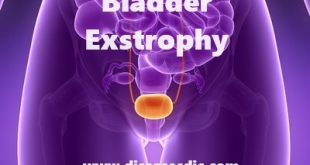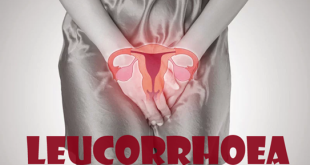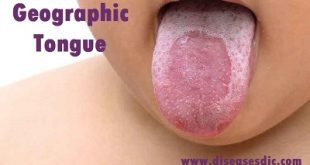Definition
Bad breath, medically called halitosis, can result from poor dental health habits and may be a sign of other health problems. Bad breath can also be made worse by the types of foods you eat and other unhealthy lifestyle habits.
Halitosis, or bad breath, most often starts in the mouth. Poor oral hygiene allows food particles to collect on the surface of the tongue, between the teeth or along the gingival (gum) tissue that surrounds the teeth. Naturally occurring bacteria in your mouth then break down those food particles, releasing chemicals that have a strong odor.
White coating on the tongue
Historical view about Halitosis
Fetor oris‖, mauvaise haleine, the universal medical term “halitosis” used since 1930 comes from “Halitus” meaning “breath”, and “osis” meaning “chronic disorder”. Now if the term “halitosis” is relatively recent, its negative effects go way back to the most ancient times of humanity. In Talmudic Law (2000 years old), mouth malodor of the partner may constitute a founded motive for divorce.
Chinese emperors in Old China used to ask their visitors to chew clove before personal meetings. Ebert’s Papyrus (around 1700 BC) mentions a medication used in Old Egypt to alleviate bad breath: the tablets are made out of a cocktail based on incense, cinnamon, myrrh, and honey. Hippocrates (460-377 BC) had an exotic recipe based on marble powder for women suffering from bad breath. Old traditional treatments used Guava leafs in Thailand, eggshells in China, parsley in Italy, and urine-based mouth rinse in some European cultures.
Epidemiology at worldwide
The prevalence of objectionable halitosis (bad breath) is about 2.4% of the adult population. According to the National Institute of Dental Research, about 65 million Americans suffer from halitosis (bad breath) at some point in their lives.
Bad breath triggers
- Saliva helps wash food particles from your mouth; thus, people with a dry mouth are at an increased risk of experiencing bad breath. Some medications, mouth breathing and smoking all can contribute to dry mouth.
- Infections in the mouth, such as dental caries (tooth decay), periodontal (gum) disease or mouth sores related to other conditions may contribute to bad breath. Surgical wounds (from extracted teeth, for example) also can be a source of halitosis.
- The bacterial film called “plaque” that occurs naturally in your mouth can build up if not removed regularly through good oral hygiene practices. The bacteria in plaque give off an odor that affects your breath.
- Diet is a common bad breath culprit. Foods such as garlic and onions, in particular, can foul your breath. Once your food is digested, chemicals that cause odor can be absorbed into your bloodstream and from there into your lungs; these chemicals then are exhaled. Diets high in protein and sugar also have been associated with bad breath.
- Bad breath can be a byproduct of certain health conditions. It may result from infections in the nose, throat or lungs; chronic sinusitis; postnasal drip; chronic bronchitis; or disturbances in your digestive system.
- Almost all causes of bad breath and taste disorders involve a group of anaerobic Sulphur producing bacteria that live below the surface of the tongue, in the throat, often in the tonsils and between the teeth.
General causes of Bad breath
- A dry mouth
- Post nasal drip
- A diet high in proteins (dairy foods, red meats, beans, Atkins Diet etc)
- Smoking
- Alcohol (in adult beverages or surprisingly in your mouthwash)
- Hormonal changes
- Medications which have dry mouth side effects
- History of diabetes Special food diets (i.e. The Atkins Diet or other high protein diets)
- Excessive use of ‘old fashioned’ oral products (containing alcohol and sodium laurylsulphate)
Signs and symptoms of Bad breath
- The most obvious sign or symptom of bad breath is noticing an unpleasant smell coming from the mouth
- Unpleasant or sour taste or changes in taste
- Dry mouth, and a coating on the tongue.
Diagnosis of Bad Breath
- The Halimeter (also known as a portable sulfide gas monitor) is the most commonly used clinical diagnostic instrument utilized in this field. It measures the concentration of hydrogen sulfide in parts per billion (ppb) in mouth air. Sensors for volatile sulfur compounds (VSCs) have been incorporated into probes and paddles, which can be placed directly on the tongue for measurement (Diamond Probe, Ann Arbor, Michigan).
Halimeter
- Organoleptic measurements or the use of one’s nose to smell and rank the intensity of odors are considered the criterion standard for the measurement of malodor.
- The intensity of halitosis (bad breath) is based on the Rosenberg scale, which rates odor intensity and is as follows:
- 0 – Odor cannot be detected
- 1 – Questionable malodor, barely detectable
- 2 – Slight malodor, exceeds the threshold of malodor recognition
- 3 – Malodor is definitely detected
- 4 – Strong malodor
- 5 – Very strong malodor
- Bacteriologic analysis from the biofilm and scraped specimens obtained from the tongue dorsum or other oral sites can identify the VSC-producing bacteria. Porphyromonas, Prevotella, Actinobacillus, and Fusobacterium species were the most common organisms identified from cultures.
Treating of Bad breath
The best way to treat bad breath (halitosis) is to instill patients with good oral hygiene practices. Mechanical reduction of malodor (bad breath) can be achieved by reducing the intraoral bacterial count by disrupting the tongue biofilm, thus decreasing the production of volatile sulfur compounds (VSC) or volatile organic compounds (VOCs). The common methods used include:
- Tongue brushing
- Tongue scraping
- Chewing gum
- Mouthwash such as hexidine, Listerine and Thera breath
Tongue Scraper
Flossing the inter dental surfaces and brushing the teeth helps in the reduction of oral microflora
Natural Cures for Bad Breath
-
Brush teeth two to three times a day.
-
Massage the gums and the tongue with the toothbrush, or use a tongue cleaner. Floss teeth well.
-
Mix 1 teaspoon of salt to a glass of water and gargle with this three times a day.
-
Mix a pinch of baking soda to your toothpaste – it keeps away bad breath.
-
Mix ½ teaspoon salt to 1 teaspoon of mustard oil and massage the gums with this, it tightens the gums and prevents gum disease and keep away bad breath.
-
After eating food that has cheese, onion or garlic you need to brush or chew a fresh mint.
-
Dilute a ½ teaspoon of apple cider vinegar in a glass of water and use as a mouthwash. It is very effective to rid bad breath.
-
Eating an orange, lemon or grapefruit is an interesting way of fighting bad breath as the acid in the fruit stops the formation of bacteria.
-
Chewing on fresh mint leaves or parsley leaves is one of the best-known remedies for bad breath.
-
Drink a cup of unsweetened black tea, as this also removes the mouth bacteria.
-
Carry some spices like cardamoms’ or cloves, and chew on them often.
Prevention of Bad breath
Preventing halitosis is always easier than treating it. By developing the right habits, you can effectively help prevent it.
- Eat foods rich in fiber: High fiber foods help prevent halitosis. Avoid eating heavily processed foods that contain refined carbohydrates such as cookies, cakes, sweets and ice cream.
- Use mouthwash: Some mouthwashes or oral rinses are effective at preventing bad breath. However, you should never use alcohol-based mouthwashes because the alcohol makes the mouth very dry, which will actually make the problem worse.
- Drink green and black teas: They contain polyphenols that help eliminate sulfur compounds and reduce oral bacteria.
- Avoid drying medication: Try not to take antidepressants, diuretics, pain relievers, and antihistamines unless it is absolutely medically necessary. These drugs inhibit saliva flow and can cause chronic dry mouth.
- Avoid products with sodium lauryl sulfate or alcohol: Do not use any oral hygiene products that contain sodium lauryl sulfate or alcohol because the alcohol makes the mouth very dry, one of the most common causes of bad breath.
- Clean your mouth after eating meat, fish or dairy products: Practicing consistent and thorough oral hygiene is an effective prevention tool.
- Stop smoking: Studies have shown that smokers are at higher risk of developing periodontal disease and dry mouth. Furthermore, people who smoke may also engage in other habits that promote this condition such as dieting, drinking alcohol, and suffering from chronic anxiety conditions that require exacerbating prescription medications.
- Breathe through your nose instead of your mouth: Try to address any snoring or sleep apnea issues that could be affecting your breath and causing dry mouth.
- Drink water: Keep your mouth moist by drinking plenty of water.
- Clean your dentures at least once a day: Practice the same, proper oral care that you would with your original teeth.
- Eliminate dairy products from your diet: Lactose intolerance can be an underlying cause of halitosis.
- Use an oral probiotic like S. salivarius K12 and M18: Use probiotics to balance the oral cavity and prevent an overgrowth of the odor-causing bacteria involved in halitosis.
 Diseases Treatments Dictionary This is complete solution to read all diseases treatments Which covers Prevention, Causes, Symptoms, Medical Terms, Drugs, Prescription, Natural Remedies with cures and Treatments. Most of the common diseases were listed in names, split with categories.
Diseases Treatments Dictionary This is complete solution to read all diseases treatments Which covers Prevention, Causes, Symptoms, Medical Terms, Drugs, Prescription, Natural Remedies with cures and Treatments. Most of the common diseases were listed in names, split with categories.








Thank you for this information. I am going to try some of the recommendation that were mention on bad breath. I am tired of a smelly dry mouth. I have been using different mouth wash. The medication I am taking do makes my mouth very very dry. S o I am going to talk with my doctors. Maybe some changes will help. Thanks again. Maybe now I can be with people again.
From southwestern states of Nigeria here, local herbs and chewing sticks are very good and efficacious.
Please email me some food ? that contain fiber please
Bran (Corn Bran)
Cauliflower & Broccoli (Raw Cauliflower)
Cabbage (Raw Savoy)
Berries (Raspberries)
Leafy Greens (Cos or Romaine Lettuce)
Celery
Squash (Baked Winter Hubbard)
Beans (Kidney)
Mushrooms (Cooked White Mushrooms)
Oranges (All Varieties)
My daughter tongue is clean but she still have this bad breath. What will i do please
If you wear dentures, remove them at night and clean to get rid of bacterial buildup from food and drink.
Drink plenty of water and swish cool water around in your mouth. This is especially helpful to freshen “morning breath.”
Brush after every meal and floss, preferably twice a day.
Replace your toothbrush every two to three months.
Arrange regular dental checkups and cleanings.
Scrape your tongue each morning with a tongue scraper or spoon to decrease the bacteria, fungi, and dead cells that can cause odor. Hold the tip of the tongue with gauze to pull it forward in order to clean the back of the tongue.
Chew a handful of cloves, fennel seeds, or aniseeds. Their antiseptic qualities help fight halitosis-causing bacteria.
Chew a piece of lemon or orange rind for a mouth- freshening burst of flavor. (Wash the rind thoroughly first.) The citric acid will stimulate the salivary glands—and fight bad breath.
Chew a fresh sprig of parsley, basil, mint, or cilantro.
Try a 30-second mouthwash rinse that is alcohol-free (unike many off-the-shelf products). Mix a cup of water with a teaspoon of baking soda (which changes the pH level and fights odor in the mouth) and a few drops of antimicrobial peppermint essential oil. Don’t swallow it! (Yields several rinses.)
please email those food fiber so that i can use iy?
Lentils
Kidney Beans
Split Peas and Chickpeas
Black Beans
Edamame, Frozen and Shelled
Refried Beans and Lima Beans, Frozen
Barley, Hulled
Dark Rye Flour
Wheat Bran
Steel-Cut Oats
Popcorn
Rasberries and Blackberries
my nose smells bad. how to cure this?
Please read the natural cure for bad breath in the post. There are some natural remedies for bad breath follow those steps.
please sent me ..some medicine which is …..easily available in Pakistan…my tongue is also clean i brush twice a day…bad the bad air is my problem
Please follow the natural treatments that are given in the post.
pls I need prevention of mouth wetting for my child
1. Let your toddler have some ice creams or other cold food items that can help soothe your toddler’s gums.
2. Ask your toddler to close his lips and keep his chin up, especially while eating. It will help your toddler swallow better and avoid drooling.
3. Limit your toddler’s intake of sugary or overly sweet foods. Eating foods that are too sweet can often lead to an excess production of saliva, which your toddler may find difficult to swallow.
Since I was a kid I have this serous bad mouth and nose smell I tried several treatment I am still suffering from it. I am now 38 and I am so embarrassed among people my family, so I isolated myself. If can treatment please and free from these illness I will be the happiest in the whole world
Follow the natural treatments listed in the post.
for someone who cannot swallow saliva due to pregnancy what can she do to prevent halitosis
Please see the natural remedies for bad breath in the post.
is hydrogen peroxide good for mouth wash.
It has a long proven time-tested thing that hydrogen peroxide (H202) can be safely used as a mouthwash, provided the FDA approved 1%-3% concentration mixed with an equal part of water is strictly adhered to.
Wat if d odour stems from inside d stomach and not d mouth or tongue? Wat remedy can b used?
The odour from bowel may be due to GERD, Gas, Bowel Obstruction, and Leaky Gut” syndrome. Certain measures can be taken as follows:
1. Diet modifications to treat GERD
2. Drug therapies to treat GERD
3. You may want to limit or avoid these foods:
alcohol
coffee and teas that contain caffeine
onions
garlic
citrus fruits and juices
tomato products
peppermint
spicy foods
chocolate
fried or fatty foods
can I get baking soda in the drugs store to buy ?
you can get from supermarkets.
Please my case is different. even after brushing my teeth and clean my tongue well, I still have bad breath. and sometimes the tooth paste can cause me have a bad breath. what can I do?
Please follow some natural remedies.
I brush my teeth 2 in a day but my mouth still smelling bad I used the tables Flucoric 200 it help me for few day but still smell bad
Please consult a doctor.
hey please I need your help everytime I brush my mouth but I’m still smiling a bad breath
please consult a doctor.
pls mine is from my nose, how do i treat it
Please consult an ENT specialist.
Please am suffering from bad breath,l tried it severely but still,please l need help
Kindly follow the below methods
Tongue brushing
Tongue scraping
Chewing gum
Mouthwash such as hexidine, Listerine and Thera breath
Note: Consulting a dentist would help you to diagnose and find appropriate treatment measures for this condition.
ls bitter kola good for treating bad breath?
Studies have shown that Bitter kola possess strong antibacterial property, and as such, fights bacteria that cause mouth odour.Just chew one or two pieces of bitter kola at the last thing before you go to bed. By the next morning, you will find out that your mouth is as fresh as if you have just brush your teeth.
how about bad smell coming out from our nose ? any treatment for nasal bad breath pls ,?
Occasionally encountering an unpleasant smell is normal. However, several conditions — including those involving the sinuses, nasal passages, and mouth — can cause a bad smell that seems to come from the inside of the nose. There is no one treatment for bad breath. People with chronic sinusitis may find the regular use of a saline nasal spray helpful